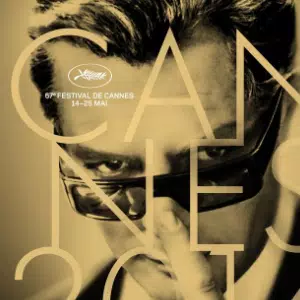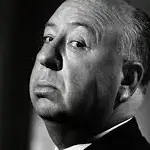
If you'd been told 20 years ago that Trent Reznor, the bandleader of industrial metal band “Nine Inch Nails”, would win multiple Oscars for Best Original Score Award, you'd have thought it was some crazy fantasy.

But it has truly happened: after winning two Best Original Score Oscars for The Social Network and Soul, and composing for box office hits like Challengers and Teenage Mutant Ninja Turtles: Mutant Mayhem, Reznor has truly become one of the hottest film composers in Hollywood, not only for his constantly successful works, but also for his reshaping of Hollywood's understanding of film score.
And when we look back, we might realize with hindsight that Reznor's influence on Hollywood began more than two decades ago. From Natural Born Killers to The Girl with the Dragon Tattoo to Challengers, he's been making the sounds that tickles the hearts of the audiences for over two decades.
The Voice of the 90s
Fun fact: Trent Reznor is a huge fan of David Lynch. And like Lynch, Reznor never thought he would rise from the underground to the mainstream. The songs he wrote for Nine Inch Nails were riddled with drugs, violence and self-loathing, but oddly, these pervasively negative songs were cathartic and relieving for countless listeners. The second album of Nine Inch Nails, The Downward Spiral (1994), sold over 120,000 copies in the first week of its release. It firmly established Reznor in the mainstream music scene, and made him another musician that defines the sound of 90's angst, besides, of course, Nirvana's Kurt Cobain.

Much like the music of Reznor, the American movie screens of the 90's were filled with violence and anger. That's exactly why Oscar-winning filmmaker Oliver Stone asked Reznor to contribute some songs for his 1994 film Natural Born Killers: the rage and angst inside Reznor, in Stone's mind, is quite fitting to the subject matter of his film.
Initially, Reznor contributed only a few songs to the film. But after seeing the finished cut, he volunteered to produce the entire soundtrack album for Stone: “It would have been a shame for the soundtrack of this film to just have a dozen songs laid flat on it. I wanted to mix the songs with the dialogues, to recapture the atmosphere of the whole film, and in that way, make this soundtrack a worthy keepsake for the audience.”

In fact, the Reznor-produced Natural Born Killers Soundtrack has more sense of coherence than the film itself. While Stone's film is energetic but rather chaotic, Reznor's soundtrack not only recaptures the frantic experience of the movie but is also more moving on an emotional level. The three featured Leonard Cohen songs, Waiting for a Miracle, Anthem, and The Future, paint a grim, crumbling, and remorseful world better than the Stone-written lines, while Bob Dylan's tender vocals in You Belong to Me, which are overshadowed by the dazzling imagery of the film, are brought to life in full on the soundtrack. The soundtrack's commercial success is no less than that of the film itself: it climbed to the No. 19 spot on the Billboard album sales chart and was officially certified gold by the Recording Industry Association of America (RIAA) in 2013.
The success of this first foray into movie soundtrack production made Reznor the face of violence on the Hollywood soundtracks for the next few years. In the opening credits of Se7en, David Fincher used Nine Inch Nails hit “Closer” to present the serial killer's twisted mind. In 1997, David Lynch also specifically commissioned Reznor to produce a soundtrack album for his psychological thriller Lost Highway, in which Reznor made an eclectic selection of artists ranging from his close friend David Bowie, to his industrial metal protégé Marilyn Manson.

Collaborations with David Fincher

Nonetheless, it is his collaboration with David Fincher that firmly established Trent Reznor's status as a film composer. Their first collaboration, The Social Network, immediately won a Best Film Score Oscar for Reznor and his long-time creative partner Atticus Ross. They went on to collaborate on four subsequent films: The Girl with the Dragon Tattoo, Gone Girl, Mank, and The Killer.
These soundtracks by Reznor and his partner Atticus Ross, while a far cry from his earlier industrial metal style, remain essentially in the same vein as Nine Inch Nails' work. They all have beautiful, ear-pleasing melodies, but lurking underneath them is the sound of angst that continues to tear at the hearts of the characters. Such agitation and anger are also the undertones of David Fincher's films, and when they are contrasted with Fincher's increasingly clean and simple outlooks of scenes, the collision between the images and sounds becomes more and more intriguing.
Yet the sounds Reznor contributed to each Fincher film were significantly different. The Social Network was a film about one of the world's most famous tech nerds, so Reznor created a sound very much like the soundtrack a Nintendo game would have had in the '80s.

The Girl with the Dragon Tattoo, on the other hand, was about a goth girl living in Sweden, so Reznor used electronic synthesizers to accentuate the coldness of Scandinavia, and the sound of wind chimes to underline the youthful heart of the protagonist.

In the marital thriller Gone Girl, Reznor even utilized orchestral elements, as orchestral music represents order and stability, which is exactly what marriage seeks. But the way Reznor used orchestral elements was quite unorthodox; in his perverse use, and in the struggle between orchestral and electronic music, Reznor created a sense of unease, a feeling that exactly belongs to the dysfunctional marriage that the film is about.

As for Mank, the use of vintage low-fi scores not only paid homage to the classic Hollywood orchestral soundtrack, but also underlines the sense of chaos in the spiritual world of the protagonist played by Gary Oldman.

David Fincher and Trent Reznor are a perfect match, both skilled at conveying a sense of angst and both perfectionists in their pursuit of excellence. They push each other to meet high expectations, with Fincher's direction prompting Reznor to explore new creative territories. “One of the most liberating aspects of being a film composer is that you follow the director and venture into uncharted territory, serving the film's needs. It’s definitely an exciting adventure.”
Further adventures: Soul and Challengers
In recent years, Trent Reznor and his partner Atticus Ross have been stepping into unfamiliar territories. Scoring the Pixar animated film Soul was one such venture, and Reznor admits that he chose to work with Pixar Studios not only because he has children now, but also because of the challenge that comes with scoring an animated film: how do you satisfy a child's naive desire to be entertained, while at the same time giving an adult audience another, deeper level of enlightenment? It's like scoring two films at the same time.

To achieve this, Reznor delivered two types of score: a light rhythmic score in the tradition of Pixar, and an electronic synthesizer score that expresses the soulful world of the film. The ephemeral nature of the latter type of score is almost tear-jerking. For this work, Reznor received his second Best Film Score Academy Award (shared with partners Atticus Ross and Jon Batiste).

Recently, the Reznor/Ross duo started a collaboration with Italian director Luca Guadagnino (Call Me by Your Name). They first worked together on Bones and All, the folk-inspired score added lots of local flavor to the teenage protagonist's journey across the American middle belt.

But the big splash of this partnership unfolds in Guadagnino's newest work, Challenger. Guadagnino made it clear to Reznor and Ross that he needed a rhythmic score that would get the audience dancing to. The challenge for Reznor and Ross became how to meet the director's needs while setting the mood for the emotional triangle at the heart of the movie. In the soundtrack of The Challenger, there are also two complementary styles of music: one dynamic, one quiet; one outward-looking, one introspective.

Reznor is quite blunt about his understanding of film scoring: “Lots of films in Hollywood are finished and then put music in the end, and I just think that's silly. It would be much cooler if the composer is involved earlier on.”
When it comes to the relationship between film scoring and Nine Inch Nails' work, Reznor thinks there is a good balance between the two: “The band's work is 100 percent personal expression, while film scoring is, by nature, a service to a film. Working on film scores gives us more motivation and inspiration to work on Nine Inch Nails. It could broaden our horizons, so we could bring back more from these different journeys.”




















































View replies 1